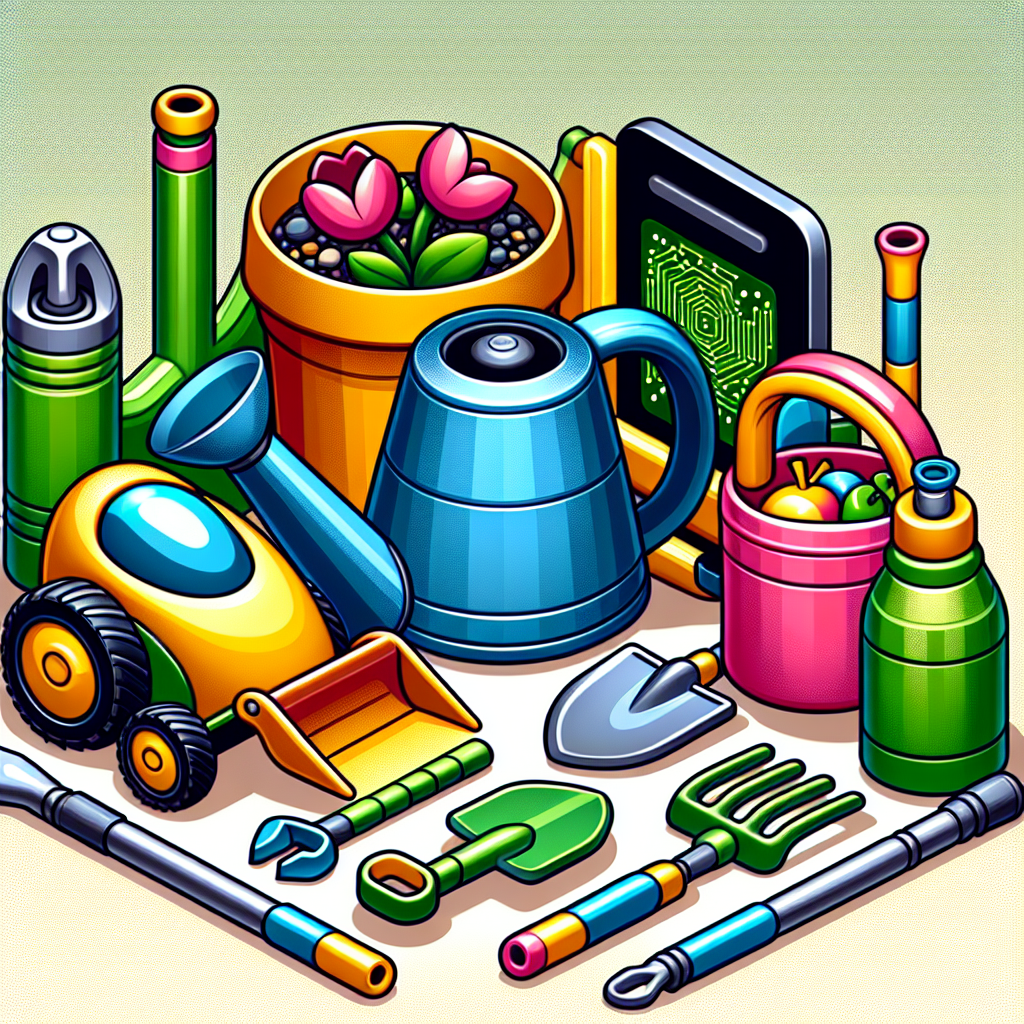Introduction
Children's gardening tools play a crucial role in fostering growth and development. Gardening offers a unique opportunity for children to connect with nature, learn about plants, and cultivate important life skills. This article provides a comprehensive guide on the importance of children's gardening tools, how to choose the right ones, and the benefits they offer in enhancing physical, cognitive, and emotional development.
Choosing the Right Children's Gardening Tools
When selecting children's gardening tools, several factors should be considered, including safety, durability, and ergonomics. According to garden expert Jane Smith, 'Children's gardening tools should be lightweight, easy to grip, and have rounded edges to ensure safety.' It is also important to choose tools that are appropriate for the child's age and size.
Essential Children's Gardening Tools
- Spades, Shovels, and Trowels
Spades, shovels, and trowels are essential tools for digging and loosening soil. Children's versions of these tools are designed to be lightweight and easy to handle. They are perfect for tasks such as planting seeds, transplanting seedlings, and digging small holes.
- Rakes and Hoes
Rakes and hoes are useful for leveling soil, removing weeds, and spreading mulch. Children can learn to rake leaves, clear debris, and create neat garden beds with child-sized rakes and hoes.
- Watering Cans and Hoses
Watering cans and hoses allow children to learn about the importance of water in plant growth. Child-sized watering cans are lightweight and easy to handle, making it easy for children to water plants without overdoing it. Hoses with adjustable nozzles provide a fun and interactive way for children to water their plants.
- Gloves and Aprons
Gloves and aprons protect children's hands and clothing while working in the garden. Gloves should fit properly and allow for dexterity, while aprons with pockets provide a convenient place to store tools and small gardening accessories.
- Wheelbarrows and Carts
Wheelbarrows and carts are helpful for transporting soil, mulch, and plants. Children's wheelbarrows and carts are designed to be lightweight and easy to maneuver, allowing children to assist in moving materials around the garden.
Specialized Children's Gardening Tools
In addition to essential tools, there are specialized children's gardening tools available that enhance the gardening experience and provide valuable learning opportunities:
- Miniature Gardening Sets
Miniature gardening sets allow children to create their own small world in a garden space. These sets typically include miniature plants, accessories, and small tools. Children can use their creativity to design and care for their miniature gardens.
- Child-Sized Watering Systems
Child-sized watering systems such as sprinklers and misters make watering plants a fun and enjoyable activity for children. These systems encourage children to take responsibility for watering the garden and can teach them about the importance of water conservation.
- Learning Kits and Activity Books
Learning kits and activity books provide children with the knowledge and skills needed to start their gardening journey. These kits often include seeds, planting instructions, and educational materials that teach children about plant life cycles, soil health, and gardening techniques.
Case Studies: Successful Implementation of Children's Gardening Tools
School Gardening Programs
Numerous schools around the world have implemented gardening programs to foster children's learning and development. For example, in a study conducted by the University of California, Berkeley, students who participated in a school gardening program showed increased knowledge of nutrition and healthier food choices.
Community Gardens for Children
Community gardens offer children the opportunity to participate in a collaborative gardening experience. These gardens provide a sense of community and allow children to learn from experienced gardeners while growing their own fruits and vegetables.
Home Gardening Experiences
Many families incorporate gardening into their daily lives as a way to bond and teach children important life skills. A study published in the Journal of Extension found that children who were engaged in gardening activities at home showed increased self-confidence, improved social skills, and a greater appreciation for nature.
The Benefits of Using Children's Gardening Tools
Children's gardening tools offer a wide range of benefits in promoting physical, cognitive, and emotional development:
- Enhancing Physical and Motor Skills
Gardening involves physical activities such as digging, planting, and watering, which help develop gross and fine motor skills. These activities improve hand-eye coordination, strength, and dexterity.
- Promoting Cognitive and Emotional Development
Gardening allows children to engage in problem-solving, critical thinking, and decision-making. It promotes cognitive development by fostering curiosity, creativity, and an understanding of cause and effect. Additionally, being in nature has a calming effect on children, reducing stress and promoting emotional well-being.
- Fostering Connection with Nature
Gardening provides children with an opportunity to connect with nature, fostering a sense of awe, wonder, and appreciation for the environment. It promotes environmental awareness and encourages children to become responsible caretakers of the earth.
Conclusion
Children's gardening tools play a crucial role in promoting children's growth and development. By selecting the right tools and providing opportunities for children to engage in gardening activities, we can nurture their physical, cognitive, and emotional well-being. Incorporating gardening into children's lives allows them to connect with nature, develop valuable life skills, and cultivate a lifelong love for plants and the environment.
Call to Action
To further explore the significance of children's gardening tools, engage in discussions with professionals in the gardening industry. Share your experiences, insights, and learnings to contribute to the growing body of knowledge on gardening for children's development. Additionally, continue researching and experimenting with different gardening tools and techniques to optimize the gardening experience for children.
Topics




